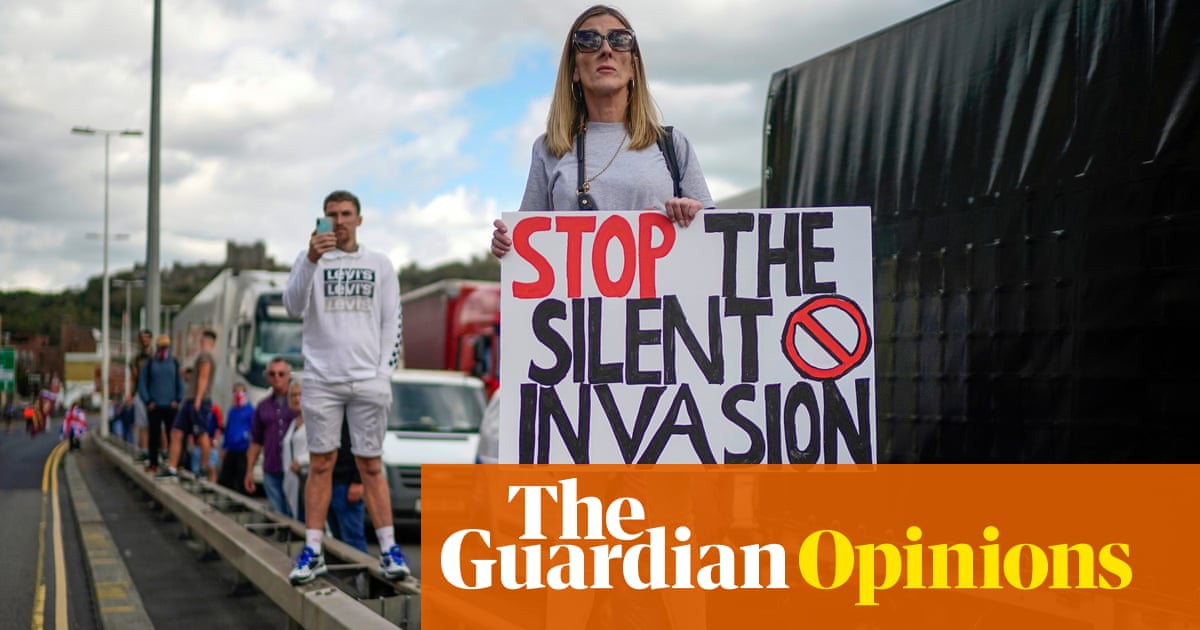Keir Starmer said this week that Britain was becoming an “island of strangers”.
“The current system is contributing to forces that are slowly pulling our country apart,” said the British prime minister. “I believe we need to reduce immigration, significantly.”
Statements such as this are becoming more common across western democracies. Politicians and pundits portray immigration as a threat. It dominates election campaigns, drives public fear and above all distracts from domestic failures.
But in all the noise about borders, smashing the gangs and stopping the boats, one truth keeps getting ignored: not all of us want to come.
In fact, most of us are staying. Not because it’s easy, but because we believe in fixing what’s broken at home. But the west’s own policies make that harder.
In the UK, immigration has gone from a fringe talking point to a national obsession. In 1997,just 3%of Britons thought immigration was a key political issue. By the time of the Brexit referendum in 2016, that number had shot up to 48%. Reform UK and its leader Nigel Farage have built entire political identities around stopping immigration. Across the Atlantic, Donald Trump made anti-immigrant rhetoric central to his election campaign, once again promising mass deportations and calling migrants criminals who were “poisoning the blood of the nation”.
But despite all this noise, the numbers tell a different story. According to the Mo Ibrahim Foundation,only 12% of migrants in Europe and 5% in North Americaare from Africa. Most African migrants don’t even leave the continent,they move to neighbouring countriesfor work, safety, or opportunity.
Our governments can make it difficult to stay, however. In Kenya, we are dealing with high unemployment,inflated public debt,widespread corruptionand growing repression including enforced disappearances. Between June and November 2024, the Kenya National Commission on Human Rights reported 74 enforced disappearances, with 26 individuals still missing.
I’ve been part of youth-led protests against these issues. I’ve helped to organise medical support for victims of police violence. I’ve sat with families whose children were killed for asking questions. This is the painful truth behind why people leave – not because they don’t love home, but because they are pushed out by systems that don’t value them.
Still, there has been a shift recently. Young people are beginning to see their presence as a form of resistance. More of us are asking: what if we stopped running and started rebuilding? InKenya, the phrase “Kenya ni home” (Kenya is home) has become a rallying cry. It’s a message of ownership, not resignation.
And this isn’t just happening in Kenya. It’s part of a broader wave of youth-led resistance across the global south and beyond.
In Bangladesh, university students launchedmassive protestsin 2024 over a controversialjob quota system, which reserved a large portion of civil service positions for certain groups. What started as a campus issue grew into a national movement, students poured into the streets in Dhaka and other cities, demanding fairness and opportunity.
InSerbia,protests began in November after the collapse of a newly renovated railway station canopy in Novi Sad, which killed 16 people and exposed systemic corruption and government negligence. Serbian students saw that corruption kills and are mobilising against authoritarianism.
InMozambiquethe youth-led protests of 2024 were ignited by widespread allegations of electoral fraud in the October general election. Young people were fed up with the ruling party’s extended grip on power and their leadership’s persistent failure to provide answers to issues like unemployment and declining standards of living.
What’s more troubling is how the west’s immigration panic actually contributes to the instability it claims to fear. Western countries continue to sign security deals with repressive governments,selling weaponsto the very regimes that push people to flee. They make trade deals that gut local economies and extract resources, then act surprised when people search for alternatives.
They also delay climate justice. Africa contributes less than 4% of global emissions but suffers some of the worst effects of the climate crisis such as droughts, floods and hunger. Yet the countries most responsible areslow to acton climate finance and adaptation funding. When young people’s farms dry up or their homes are swept away, where do you expect them to go?
Even the global financial system isn’t neutral: just look at Kenya. The 2024 finance bill wasn’t just a local decision, it washeavily influencedby the International Monetary Fund (IMF), which pushed the government to raise more domestic revenue as part of its loan conditions. These directives often come with little public transparency and force austerity measures that hit ordinary Kenyans the hardest. Under pressure to meet IMF targets, the government proposed painful tax rises on fuel, food and digital services, while public services such as healthcare and education remain underfunded.
I believe in Kenya. Because it’s home. I’ve lived the hardship, corruption, police brutality and broken systems. But I’ve also seen people show up for each other. Young people raising money for gunshot victims, cleaning up flood-hit neighbourhoods, looking out for each other.
Most of us stay because we believe home is worth fighting for.
Hanifa Safia Adan is a Kenyan journalist and human rights defender
